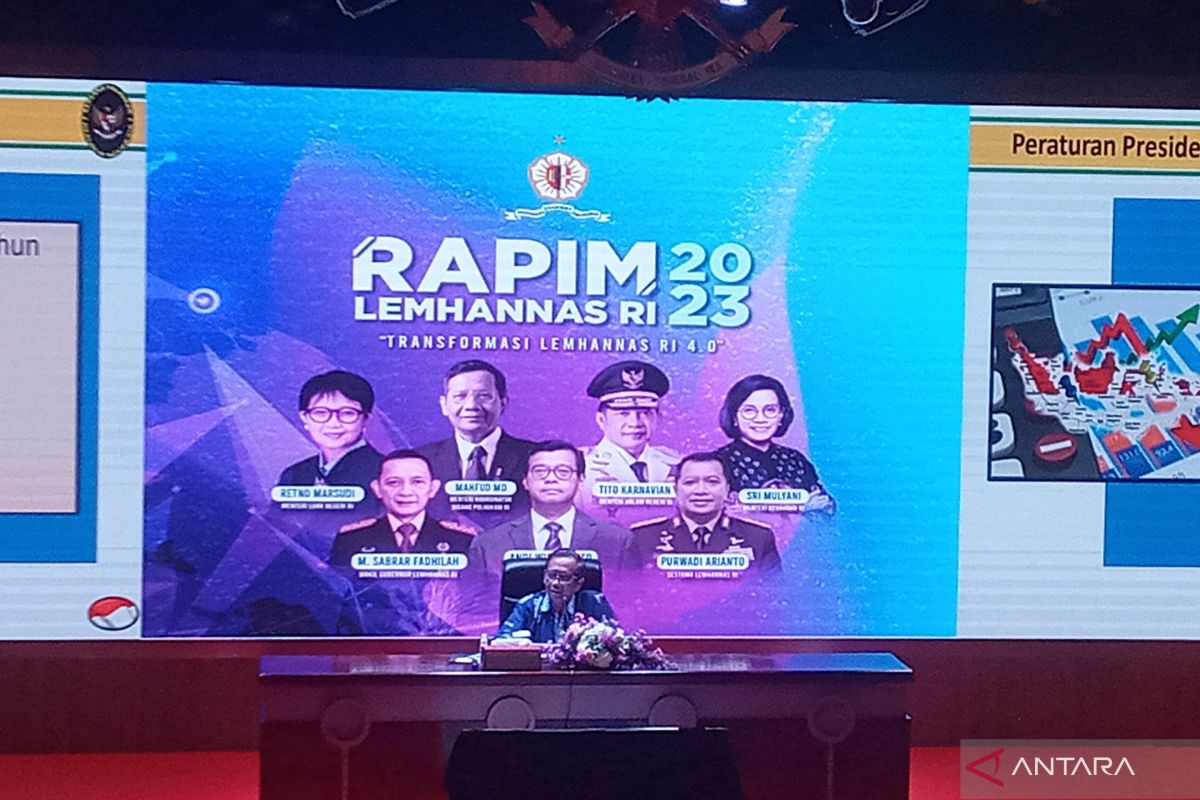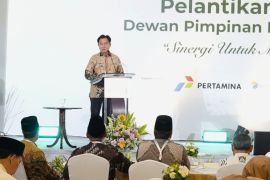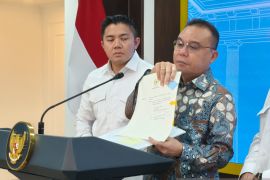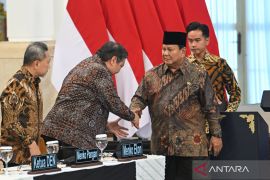"It will be good if we can restrict cash transactions. For instance, if someone needs to do a financial transaction whose amount surpasses Rp100 million (US$6,685) they must be required to transfer the cash instead, and the account origin and destination (must be recorded). In that way, nobody can commit corruption," Mahfud explained.
He also highlighted the Asset Confiscation Bill, whose deliberation has stalled in the parliament, could help reduce corruption risks.
During the National Resilience Institute’s (Lemhannas’) policy direction meeting on "Transformation for Lemhannas RI 4.0" here on Wednesday, he said that unrestricted cash transactions are contributing to the recurrence of corruption crimes.
Corruptors are devising a variety of methods to deliver cash to recipients, such as the methods employed by former Constitutional Court chief justice Akil Mochtar, who has since been convicted of bribery, he noted.
"He (Mochtar) boarded a plane, and another judge followed him--they had planned to board the same flight. They arranged the seat (so they knew) where the briber sat, and they brought the same bag placed at a predetermined position. When they disembarked, they switched the bag, so one party will bring the empty bag, while the other brings the bag full of cash," Mahfud expounded.
Besides passing a law to limit cash transactions and the Asset Confiscation Bill, the digitization of the bureaucracy could also help reduce corruption in the government, he said.
The coordinating minister highlighted that efforts to reduce corruption in Indonesia must be enhanced following the publication of Indonesia's latest anti-corruption score, which has declined significantly.
Mahfud said that he was appalled at the decline in Indonesia's corruption score on Transparency International Indonesia's (TTI) corruption perception index.
"I am shocked. Yesterday or two days ago, the corruption perception index released by TII revealed that our corruption index that normally improved gradually, from 30 to 39, then slightly declined to 38, now fell to 34," he informed.
Related news: BI increases policy instruments to expand cashless transactions
Related news: Indonesian millennial youth prefer non-cash transactions
Related news: BI to optimize electronic transactions in transportation
Translator: Tri Meilani A, Nabil Ihsan
Editor: Azis Kurmala
Copyright © ANTARA 2023












